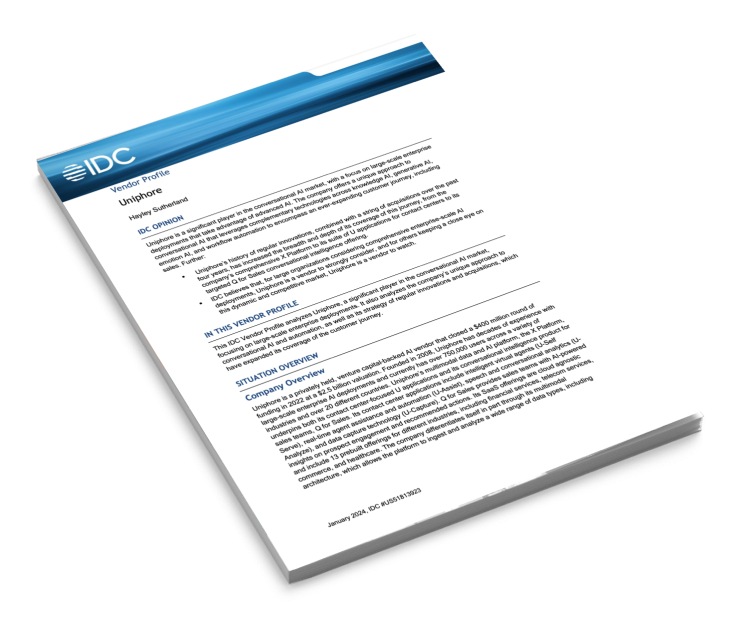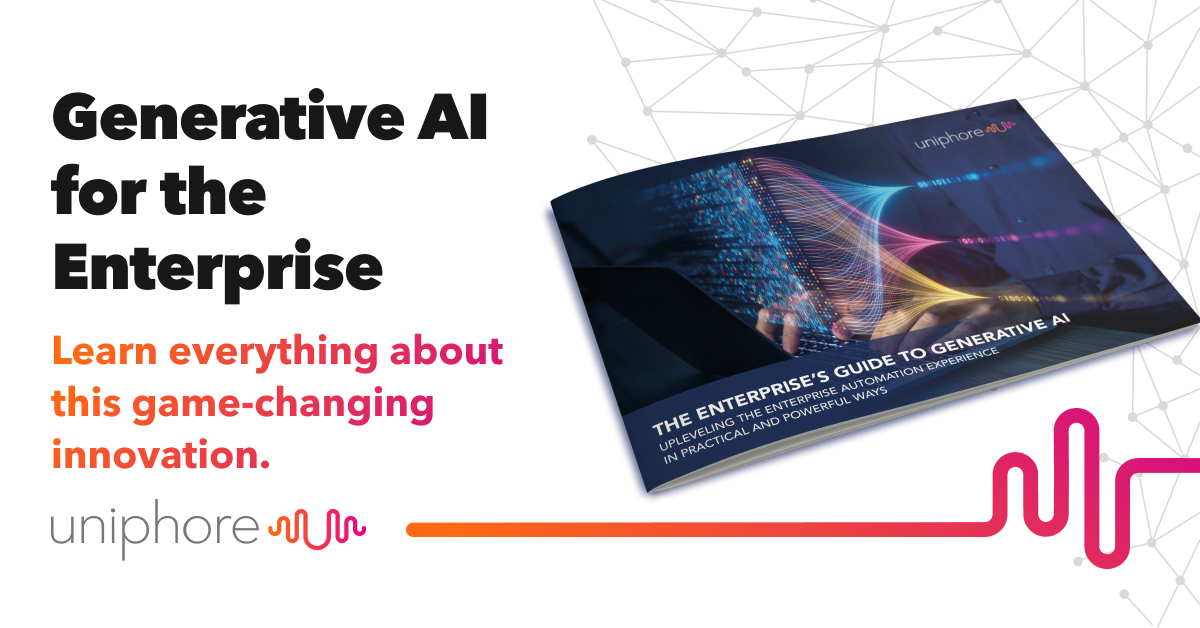What is knowledge AI and why does your contact center need it?
Agents hate doing this as much as customers hate being put on hold. But with the answers they’re searching for scattered across systems, documents, and knowledge bases — some of it incomplete, out of date or missing — agents must spend precious time combing through silos of information.
Making sure information is easy to find and up to date has been an ongoing struggle for enterprises. But with knowledge AI, that’s no longer the case – users get the information they need without poring through pages of irrelevant content.
Time employees spend searching and gathering information
Said they often or sometimes need more information about products before making a purchase
Information stored by an organization is of unknown value
What is knowledge AI?
Knowledge AI combines advanced conversational AI technologies with cognitive search capabilities to unlock the full value of information that’s typically stored in different formats and spread across various systems within an enterprise.
In the contact center, knowledge AI eliminates common points of friction in self-service and elevates conversations between customers and agents. By ingesting structured and unstructured data in the form of knowledge bases, website pages, documents, and more, knowledge AI transforms intelligent virtual assistants (IVAs) and human agents into subject matter experts with the exact information they need to answer customer inquiries and provide personalized recommendations.
How does knowledge AI work?
On the surface, knowledge AI seems deceptively simple – customers get quick answers to questions while interacting with an IVA or live agent. Beneath the surface is another matter — below are a few notable technologies that come together to deliver desired results:
Natural Language Processing
NLP analyzes, understands, and derives the meaning of words and phrases. Uniphore also applies emotion and sentiment analysis to predict intents and drive understanding accuracy.
Knowledge Extraction
Entities are extracted from structured and unstructured data across the enterprise and unified into knowledge graphs, enabling the system to understand the relationship of different concepts.
Cognitive Search
By understanding user intent, the context of the query, and the relationship between entities, the semantic search engine utilizes question-answering models to produce exact information. This goes beyond traditional keyword search, which simply matches keywords and do not account for the meaning of words.
What’s a knowledge graph?
An essential component of knowledge AI is the knowledge graph, which unifies information spread across enterprise applications, knowledge bases, knowledge management systems, and more into a network of relationship.
At a fundamental level, a knowledge graph helps machines understand how different pieces of information are connected. For example, a knowledge graph can contain information about healthcare providers, locations, services, and other attributes. With this framework of connectivity, a user can ask a question like, “Which clinic in Santa Monica offers MRI services and accessible parking?”
For a customer service agent, this may involve several layers of search: first, what clinics are in Santa Monica? Second, which clinics offer MRI services? And third, what clinics have accessible parking? After collecting this information, the agent can then derive which clinic or clinics meet the criteria. Knowledge AI renders these additional steps unnecessary – by connecting related information, it can produce highly specific answers to queries that normally yield generic results.
What benefits does knowledge AI deliver?
The value of knowledge AI extends beyond making the right information accessible to users. By unifying information across silos of data, enterprises can leverage the full value of information they have available – from product catalogs to knowledge bases and more – and dynamically make updates to ensure information stays up to date.
The Value for Enterprises
For businesses, making the search for relevant answers effortless will improve:
Agent Performance
Orchestrate processes and knowledge in a single conversation flow to streamline and automate getting agents the information they need in real time
Adoption and Usage of Self-Service
Maximize IVA value by delivering a low-effort customer experience while reducing operational overhead
Conversion Rates
Give consumers the information they need to drive a purchase
IDC Profiles Uniphore’s Unique Approach to Enterprise-Scale AI


The Value for Customers
According to Accenture, people expect to have questions answered at the touch of a button and are asking more questions because of the ubiquity of information: “People expect to get answers at points of interaction with the product or service they want to buy and at the point of purchase … A brand is a bundle of promises, and customers want to know more about those promises…”
Generic answers, whether in interactions with a virtual assistant or live agent, are rarely enough to resolve customer issues. With knowledge AI, customers reap the benefits of:
Hyper-Personalized CX
Get information tailored to individual consumer needs and preferences
Fast Resolution
Resolve complex issues quickly and get specific answers to questions
Conversion Rates
Give consumers the information they need to drive a purchase
What are popular use cases for knowledge AI?
Incorporating knowledge AI into conversational self-service is key to creating a sticky user experience, one in which customers keep coming back to because of how accurate and easy it is to get the information they want. The problem of “information overload” is all too real – knowledge AI gives customers what they need without hindering the decision-making process.
As part of a real-time agent guidance solution, knowledge AI helps agents navigate discovery questions and recommend suitable products and solutions. At a higher level, knowledge AI solves for the increasing amount of information that is too difficult to manage in a decision tree. Across all industries, businesses need to support their customers’ journey in a way that enhances the experience while optimizing operational efficiencies.
RETAIL
Instantly answer detailed questions about any product in the catalog
TRAVEL
Guide travelers with personalized recommendations and travel advisories
TECHNOLOGY
Simplify technical support and accelerate resolution of complex issues
FINANCIAL SERVICES
Recommend insurance plans based on automated discovery of customer needs
HEALTHCARE
Provide advice on eligible care services and protocols specific to patient needs
The broad application of knowledge AI, along with its ease to deploy as part of a conversational AI and automation platform, makes this an invaluable tool for any customer-centric organization.
